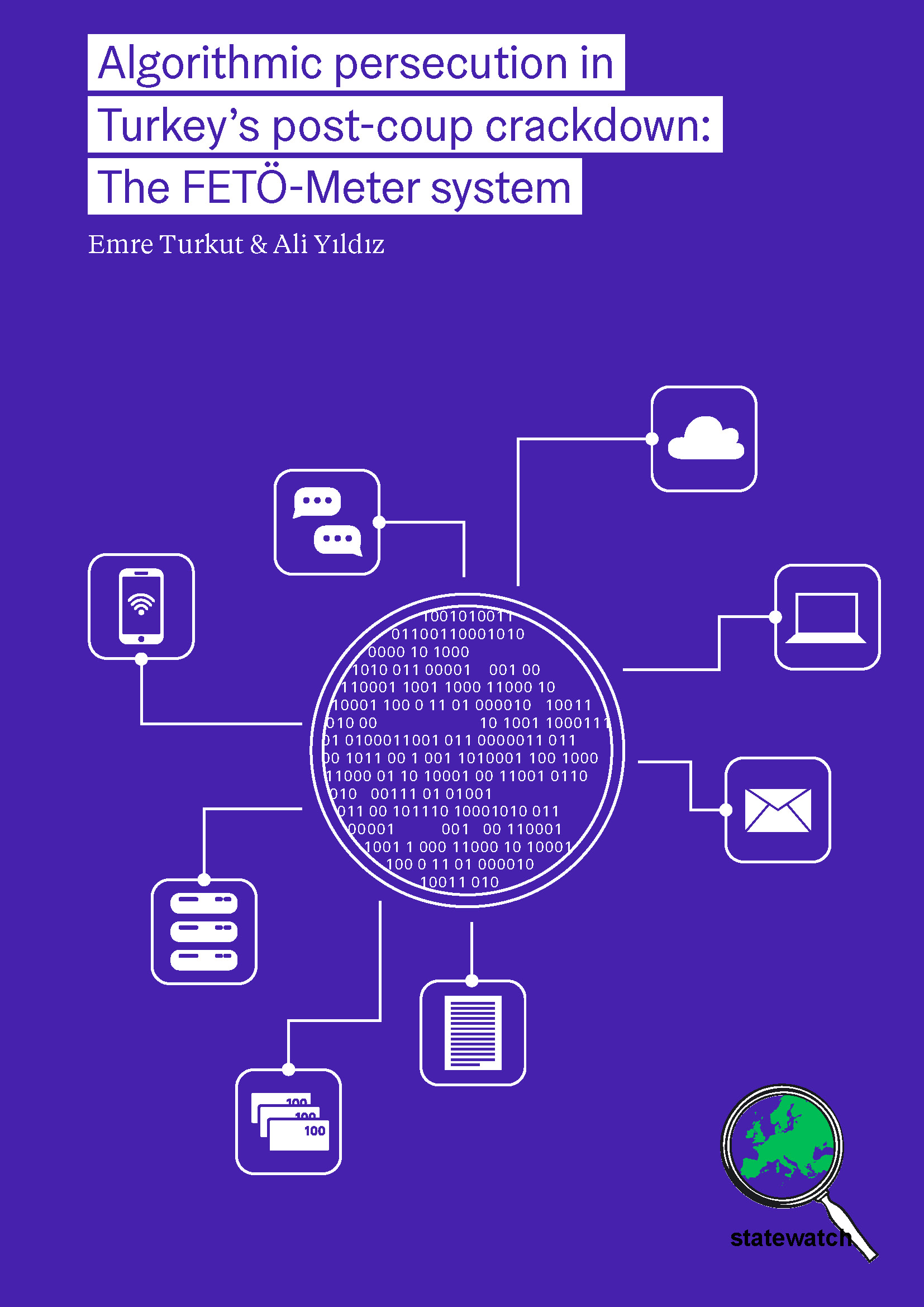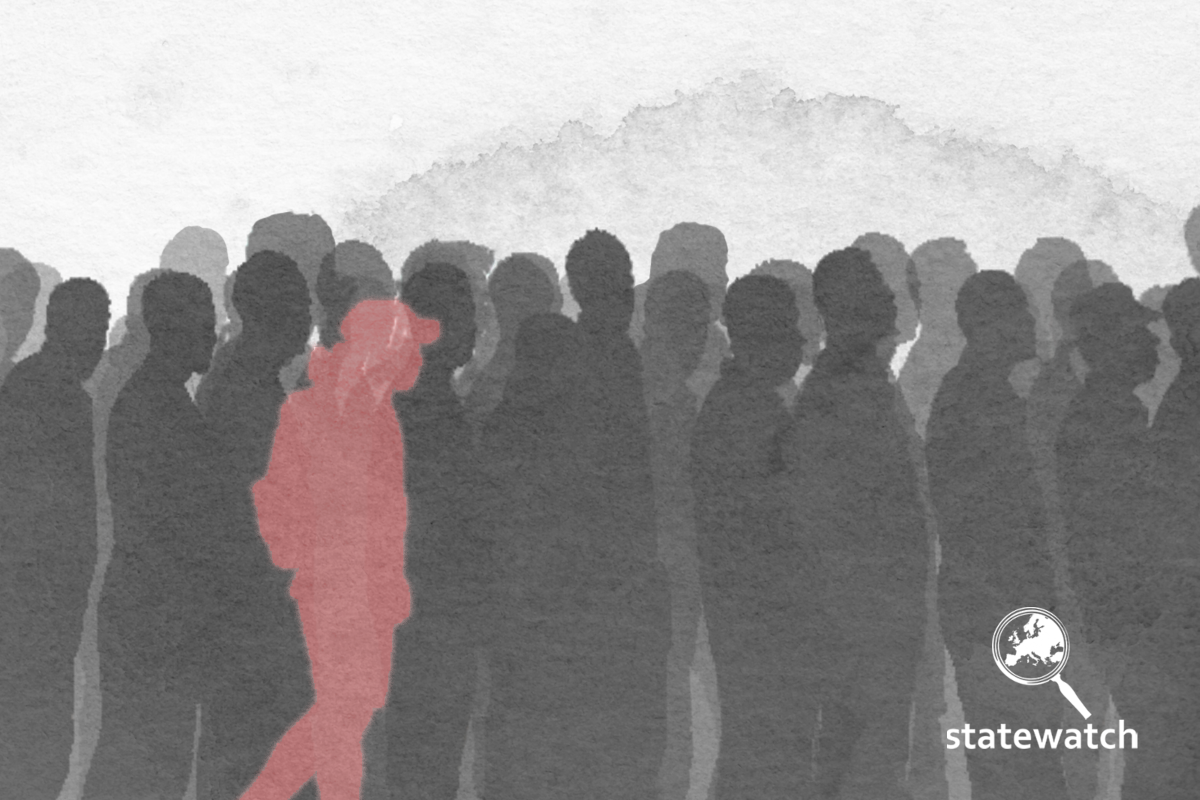New report examines redress for systemic human rights violations in Turkish messaging app prosecutions
Topic
Country/Region
13 March 2024
PRESS RELEASE: A new report published today by Statewatch provides a comprehensive analysis of the Turkish authorities’ prosecutions of individuals for using an encrypted messaging app, providing insight into systemic human rights violations and potential remedies for those who have been wrongfully convicted.
Support our work: become a Friend of Statewatch from as little as £1/€1 per month.

Authored by Dr Emre Turkut and Ali Yildiz, the report provides a forensic examination of the September 2023 judgment of the European Court of Human Rights (ECtHR) in the Yalçınkaya v Türkiye case, which found that the conviction of an individual based on the use of ByLock, an encrypted messaging app, violated several key articles of the European Convention on Human Rights (ECHR).
Since the 2016 attempted coup in Turkey, over 90,000 individuals including public servants, police officers, academics, lawyers, judges, prosecutors, business people and even university students and housewives have been purged or arrested for their alleged use of ByLock, a publicly available encrypted messaging app similar to Signal and Telegram.
In the Yalçınkaya case, the Grand Chamber of the ECtHR ruled that the Turkish authorities had violated Articles 6(1) (right to a fair trial), 7 (no punishment without law) and 11 (freedom of assembly and association) of the ECHR, and made clear that the violations were “systemic” in nature, potentially affecting more than 100,000 cases.
The report first provides significant insights into the manipulation of the ByLock dataset as used by Turkish prosecuting authorities against defendants, before going on to provide a detailed analysis of the Yalçınkaya judgment, as well as other rulings by the ECtHR and other bodies concerning ByLock prosecutions.
The report lays out a series of recommendations for the Turkish authorities to fully implement the Yalçınkaya judgment, including:
- the need to recharacterize the ByLock evidence in legal proceedings, taking into account the objective nature of the Yalçınkaya decision;
- upholding the principle of equality of arms in the realm of digital evidence;
- scrutinizing the Turkish intelligence agency’s handling of sensitive information, examining potentially exculpatory evidence; and
- addressing of any gaps within the ByLock material. [2]
Each of these issues occupies a position of paramount importance in shaping the trajectory of Turkish judicial practices concerning ByLock usage and in restoring the independence of the Turkish judiciary more generally.
The report’s detailed analysis on the intersection of digital evidence and the right to a fair trial under Article 6 of the ECHR holds relevance beyond the Turkish context. [3]
As exemplified by the recent SkyECC and EncroChat operations, which resulted in thousands of arrests across Europe, the reliance on digital evidence in criminal proceedings has become increasingly prevalent.
These encrypted tools have raised pertinent questions surrounding the legality and integrity of digital encrypted data, the reliability of expert evidence, and the adherence to fundamental criminal principles - issues that give rise to concerns regarding compliance with fair trial requirements under Article 6 ECHR.
As the use of digital evidence in criminal proceedings across the world is increasing rapidly, the report serves as a reminder for governments, judiciaries and legal practitioners to ensure that the changes this brings to criminal proceedings do not undermine human rights standards.
Quotes
Dr Emre Turkut, co-author of the report, said:
“Our findings underscore the urgent need for reforms in the Turkish judicial system to ensure fair trial rights and uphold human rights standards. The recommendations outlined in our report offer concrete steps towards achieving this goal.”
Ali Yildiz, co-author of the report, said:
"The Grand Chamber's Yalçınkaya judgment could be the most impactful judgment ever delivered in the history of the ECHR. As indicated in the judgment, it is directly applicable to 8000 pending cases and a potential 100,000 more to be filed with the ECHR. Ensuring the full implementation of the Yalçınkaya judgment is therefore of paramount importance, both for those concerned and for the human rights mechanism of the Council of Europe.”
Chris Jones, Statewatch Director, said:
“This report follows our 2022 publication of Ali and Emre’s analysis of the Turkish authorities’ use of a rights-violating algorithm to identify alleged supporters of the Gülen Movement. As with that algorithm, the Turkish authorities’ approach to the use of the ByLock app has undermined the rights of thousands of people and, as the ECtHR has now found, led to systemic problems in the Turkish judiciary. This report provides a valuable analysis of the Court’s position on digital evidence in criminal proceedings – a position that is invaluable for those facing wrongful conviction in Turkey, but relevant in many other countries across Europe.”
About the authors
Dr Emre Turkut is an international legal scholar and legal consultant. Ali Yildiz is a practicing lawyer registered in the Ankara and Brussels Bar Associations. Both are renowned for their expertise in human rights law and their commitment to upholding justice through rigorous research and advocacy.
About Statewatch
Statewatch produces and promotes critical research, policy analysis and investigative journalism to inform debates, movements and campaigns on civil liberties, human rights and democratic standards. It began operating in 1991 and is based in London.
Notes
[1] The report, ‘ByLock Prosecutions and the Right to Fair Trial in Turkey: The ECtHR Grand Chamber’s Ruling in Yüksel Yalçınkaya v. Türkiye’ is available here.
[2] These recommendations are detailed in the report on pages 28-35.
[3] The analysis is found on pages 19-24.
Our work is only possible with your support.
Become a Friend of Statewatch from as little as £1/€1 per month.
Further reading

Algorithmic persecution in Turkey’s post-coup crackdown: The FETÖ-Meter system
Based on interviews with exiled members of the Turkish military, this report looks at how the Turkish authorities utilised something called the 'FETÖ-Meter' - an Excel-based algorithm based on hundreds of data points about individuals' activities, education, work history, family and personal contacts - to target officials for persecution in the wake of the attempted July 2016 coup.
Spotted an error? If you've spotted a problem with this page, just click once to let us know.

